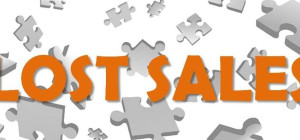To say that the sales profession has changed dramatically in the technology era just might qualify as the understatement of the year. In fact, it has changed so much that some industry insiders feel that the strong people skills required in the past are no longer as relevant.
People who hold this view feel that technology has surpassed old-school people skills in terms of importance. Others shun technology for as long as possible and focus only on acquiring new prospects and moving them through the sales funnel.

The most successful salespeople hold a position that lies somewhere between viewing sales as an art of personality versus viewings sales as a data-backed science.
Technology and Sales
When the Internet first came on the scene in the mid-1990s, no one could have predicted how people would incorporate it into every aspect of their life within the next several years. Take consumer habits as an example.
More consumers than ever before conduct product research online before ever reaching out to a salesperson. The practice is so common that three out of four business buyers state they research 50% or more their purchases online before buying anything offline. In short, selling must change to keep pace with the dramatic changes in the buying process.
Customer relationship management (CRM) software is one of the biggest changes in technology to affect the sales industry. It allows salespeople to input and track information such as:
- Leads
- Customer data
- Vendor and partner relationships
- Contacts with customers
- Marketing efforts
When used efficiently, CRM software can help salespeople understand customer needs, provide a better customer experience, attract new clients, and increase profitability. However, having this technology available only underscores the need for strong people skills in a new selling environment.
Understanding and Building Trust with Buyers Can’t Be Replaced by Technology
Effective sales go beyond just selling a product. It also sells an experience. That means salespeople must take the time to learn who the buyer is so they can uncover his or her motivations and expectations. It’s impossible to exceed or even meet the buyer’s expectations otherwise.
To truly understand the prospective customers, salespeople must engage in active listening. This has the added benefit of helping to establish trust. People aren’t going to do business with someone who engages in gimmicks rather than showing a genuine desire to help them resolve a problem. It can take many meetings with someone to earn their trust, which obviously requires excellent communication as well as listening skills.
Business professionals are busier than ever. They don’t have time for a long, overly-hyped sales pitch and will shut it down immediately. Those who are most successful in sales have mastered the art of succinct communication in person, over the telephone, and through email and other forms of written communication. The modern sales professional should aim to cover three or less points in a single exchange.
Finally, with so much basic product information now available online, sales people must be subject matter experts when it comes to their industry as a whole. Having the ability to not just recite key product features, but to evaluate buyer needs and recommend the best add-ons, applications, or variations, is essential.
People Are at the Core of Every Business
Sales has always been and will continue to be about people. After all, those in the industry don’t sell to a building or an organization. They sell to individuals. Technology enhances the game, but in the end, it’s a series of interactions between a salesperson and his or her prospect that makes or breaks a deal.







